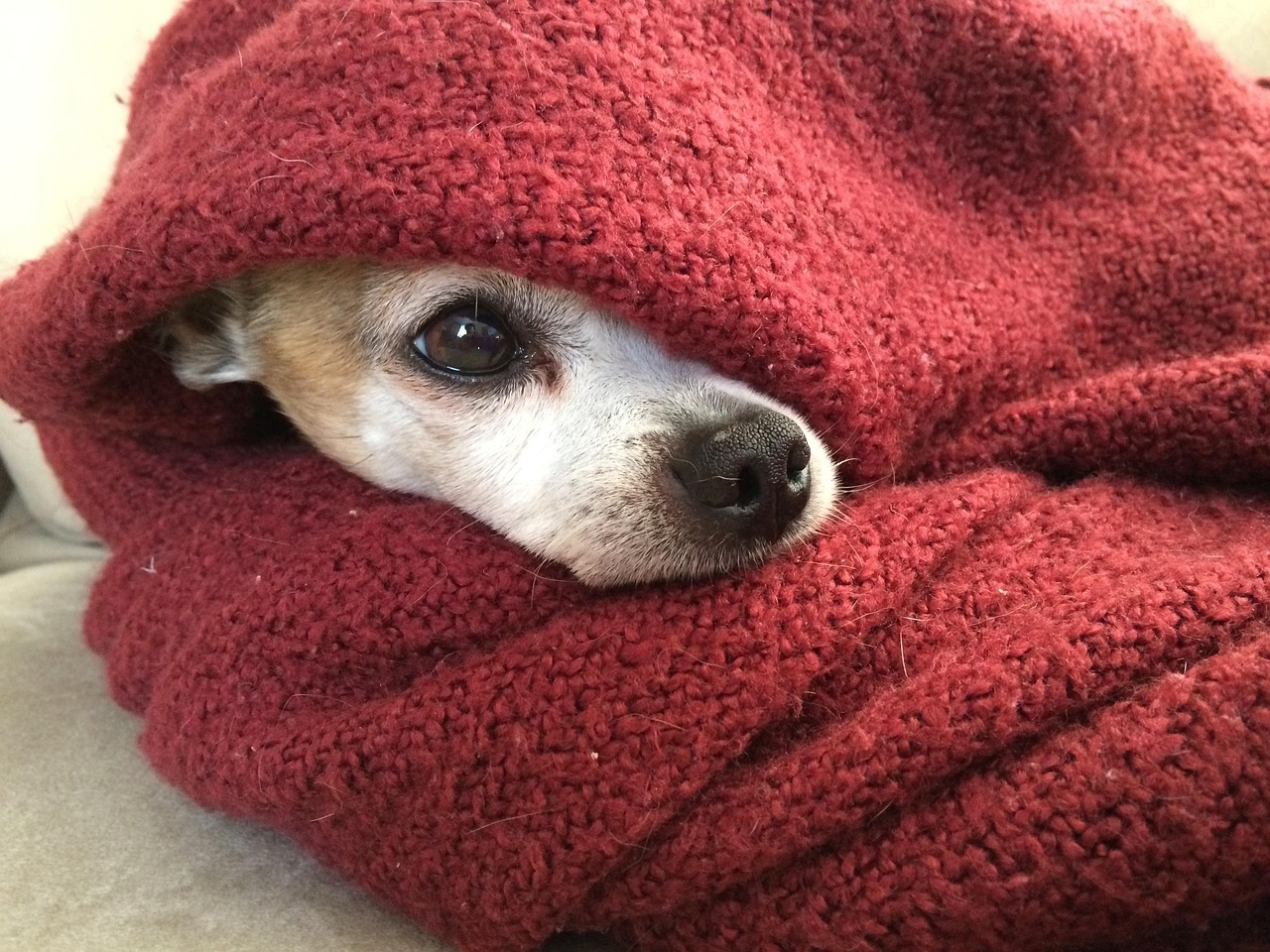einem guten Freund: German Dative Adjective Endings
In this post we’ll look at German dative adjective endings. These are the endings that you’ll use on adjectives in the dative case. First, we’ll define what all of that means, so that you understand exactly what a case is, when the dative case is used, and why German adjectives have endings in the first place. Next, we’ll look at the German dative adjective endings systematically, by breaking them down into three categories. We’ll give plenty of examples and clear explanations. Finally, we’ll wrap everything up with practice exercises so that you can test yourself.
German Cases and Adjectives
First, let’s make sure the terminology is all clear. Think of a noun case as a form that a noun takes in order to play a specific role (subject, direct object, indirect object, etc.) in a sentence. In German, noun cases mostly show up as differences in articles, for example ein, einen, einem, eines or der, den, dem, des. In a few cases, there are changes on the word ending, for example an N-noun like der Junge becomes den/dem/des Jungen in the other cases, and das Buch becomes des Buches in the genitive. Also note that most nouns add –n in the dative plural if they don’t already end in –n: den Kindern (to the kids). You can learn more about German noun cases here if you’d like.
In this post, we’re going to be looking at the dative case. The dative case is the case that nouns take when they are the indirect object of the sentence, or when they follow prepositions that take the dative. Here are examples:
- Ich habe dem neuen Lehrer mein Buch gegeben.
I gave the new teacher my book.
Dem neuen Lehrer is the indirect object of the verb geben; it is in in the dative. (The direct object – the thing that I gave – is mein Buch, in the accusative.) - Ich habe mit dem neuen Lehrer gesprochen.
I spoke with the new teacher.
Dem neuen Lehrer is the object of the preposition mit; it is in the dative.
German Adjective Agreement
In German, like in many languages, adjectives “agree” with the noun that they modify. That means taking certain endings. This only happens in German when the noun is right before the noun, not when it’s separated by a verb like sein:
- Der Film ist sehr gut.
The film is very good.
Gut is not right before the noun it’s describing, so it doesn’t have any ending. - Ich suche nach einem guten Film.
I’m searching for a good film.
Gut is right before the noun that it’s describing, which is the object of the dative preposition nach, so it takes the dative ending –en.
Adjective agreement means that the adjective will take endings to agree with the noun it’s describing. If a noun is masculine and singular, like der Film, the adjective will take masculine singular endings.
Agreement for Case and Position
But German makes things a bit more complicated, because the adjective also has to agree in case (nominative, accusative, dative, or genitive). And German makes things even more complicated because there are different types of endings depending on what word comes right before the adjective! But don’t panic, it’s all logical. You just have to take it slowly and easily.
There are three sets of endings to choose from depending on what kind of word is right before the adjective:
- der-words. Der-words are words like the definite articles (der, die, das, den, dem…) A few other words are considered der-words, including dies– (this) and welch– (which).
Examples: den guten Lehrer (the good teacher), dieses alte Haus (this old house) - ein-words. Ein-words are words like the indefinite articles (ein, eine, einen, einem, einer…). Kein (no, not any) and all of the possessives (mein, dein, sein, ihr, Ihr, unser, euer) are also ein-words.
Examples: einem guten Lehrer (to a good teacher), auf unserem alten Teppich (on our old carpet) - bare words: If there’s nothing at all before the adjective and noun, the adjective will take a third set of endings that’s nearly identical to the ein-word endings.
Examples: mit kaltem Wasser (with cold water), in alten Häusern (in old houses)
So, in other words, to pick the right German adjective ending, you have to ask yourself three different questions:
- What’s the gender or number? (masculine, feminine, neuter, or plural)
- What’s the case? (nominative, accusative, dative, or genitive)
- What’s before the adjective? (a der-word, an ein-word, or nothing at all)
Practice 1
Now let’s pause to practice identifying those things. Don’t worry about the adjective endings themselves yet. Just focus on practicing how to answer those three questions.
- Ich spreche mit einem guten Freund.
(I’m speaking with a good friend.)
a. masculine, feminine, neuter, plural?
b. nominative, accusative, dative, genitive?
c. after der-word, after ein-word, after nothing? - Sie sind meine guten Freunde.
(They are my good friends.)
a. masculine, feminine, neuter, plural?
b. nominative, accusative, dative, genitive?
c. after der-word, after ein-word, after nothing? - Ich muss dieses Hemd in kaltem Wasser waschen.
(I have to wash this shirt in cold water.)
a. masculine, feminine, neuter, plural?
b. nominative, accusative, dative, genitive?
c. after der-word, after ein-word, after nothing? - Der Lehrer gibt der neuen Schülerin ein Buch.
(The teacher gives the new student a book.)
a. masculine, feminine, neuter, plural?
b. nominative, accusative, dative, genitive?
c. after der-word, after ein-word, after nothing?
German Dative Adjective Endings
Now let’s look at the endings themselves. We’ll divide them into the three types based on what kind of word they come after.
After der-Words
First, we’ll look at der-words. After der-words, there’s just one dative ending: –en.
- Die Mutter erzählt dem kranken Jungen eine Geschichte.
The mother tells the sick boy a story. - Der Junge gibt dieser kleinen Katze ein Spielzeug.
The boy is giving this little cat a toy. - Ich möchte nicht in diesem kalten Wasser schwimmen.
I don’t want to swim in this cold water. - Mein Auto steht zwischen den großen weißen Autos.
My car is parked between the big white cars.
After ein-Words
Now let’s look at ein-words. Adjectives after ein-words take the same –en ending as after der-words.
- Papa sitzt immer in einem großen, bequemen Sessel.
Dad always sits in a big, comfortable chair. - Ich schicke meiner jüngeren Schwester eine E-Mail.
I’m sending my younger sister an email. - Ich schlafe gerne in einem kalten Schlafzimmer.
I like to sleep in a cold bedroom. - Meine Schwester geht mit ihren guten Freunden ins Kino.
My sister is going to the movies with her good friends.
Bare Forms
Next let’s look at the bare forms. If there is no article or other determiner, dative adjective endings look a lot like dative definite articles: –em for masculine (like dem), –er for feminine (like der), –em for neuter (like dem), and –en for plural (like den).
- Außer kaltem Kaffee habe ich heute Morgen nichts getrunken.
Apart from cold coffee, I drink nothing this morning. - Ich habe den Kuchen mit frischer Zitrone gebacken.
I made the cake with fresh lemon. - Dieses Hemd kann nicht in heißem Wasser gewaschen werden.
This shirt can’t be washed in hot water. - Ich verbringe gerne Zeit mit guten Freunden.
I like spending time with good friends.
Dative Prepositions
Remember that all German prepositions take objects in either the accusative, genitive, or dative case. Some pronouns always take the dative are:
- aus (from, out of)
- außer (except for, apart from, besides)
- bei (at, near, by)
- mit (with, by [a vehicle])
- nach (after, to, according to)
- seit (since, for)
- von (from, by, of)
- zu (to)
For example:
- Der Hirsch kam aus einem schönen Wald.
The deer came out of a beautiful forest. - Er fährt mit einem alten Auto zur Arbeit.
He drives to work in an old car.
There are a lot of common prepositions that can express either location or motion. For example in can mean located in or into. Auf can mean located on or onto. For these prepositions, use the dative when the preposition refers to location, not motion.
- Sie arbeitet in einem großen Büro.
She works in a big office. - Auf dem kleinen Tisch steht eine Lampe.
There’s a lamp on the small table.
Summary of German Dative Adjective Endings
Here’s a summary of German dative adjective endings. As you can see, the ending is nearly always –en, except for the singular bare forms, which look like the dative articles: –em (like dem for masculine and neuter) and –er (like der for feminine.)
| masculine | feminine | neuter | plural | |
| after der-words | -en | -en | -en | -en |
| after ein-words | -en | -en | -en | -en |
| bare forms | -em | -er | -em | -en |
Practice 2
Add the missing endings to the adjectives and then translate the sentence.
- Ich arbeite in einem groß___ Gebäude.
- Sie hilft dem nett___ Mann mit den Hausaufgaben.
- Wir sitzen an einem schön___ Tisch im Restaurant.
- Der Lehrer erklärt der jung___ Schülerin die Aufgabe.
- Ich fahre mit dem alt___ Bus zur Schule.
- Er gibt der freundlich___ Verkäuferin das Geld.
- Die Katze schläft auf dem weich___ Sofa.
- Er wohnt seit einem lang___ Jahr in Berlin.
- Sie schreibt mit einem neu___ Kugelschreiber.
- Ich treffe mich oft mit meiner best___ Freundin.
- Die Kinder spielen in dem weit___ Garten.
- Der Hund schläft unter der warm___ Decke.
- Ich spreche mit einem erfahren___ Arzt über meine Gesundheit.
- Er hilft seiner nett___ Nachbarin beim Einkaufen.
- Ich esse mit meinem klein___ Bruder zu Abend.
- Sie arbeitet in einem bekannt___ Hotel in München.
- Der Tourist spricht mit einer alt___ Frau auf der Straße.
- Die Tasche liegt auf dem dreckig___ Boden.
- Ich bin mit einem interessant___ Buch im Café.
- Er erzählt seiner jung___ Tochter eine Geschichte.
Get on the road to speaking German with the Language Garage!
We hope you’ve enjoyed learning about German Dative Adjective Endings. If you’d like to learn more:
- Follow us on Facebook, LinkedIn, BlueSky, Twitter, Threads, Instagram, or Pinterest. We publish lots of German vocabulary, grammar, and culture notes, so it’s a great way to pick up some new vocabulary and practice.
- Check out our other posts on German language, culture, and more.
- Enroll in affordable, flexible, and personalized private online German lessons or sign up for a small group online German class.
- Create a free Language Garage account to access tons of German vocabulary, grammar, and culture.
Answer Key
Practice 1
- Ich spreche mit einem guten Freund.
masculine, dative, after ein-word - Sie sind meine guten Freunde.
plural, nominative, after ein-word - Ich muss dieses Hemd in kaltem Wasser waschen.
neuter, dative, after nothing - Der Lehrer gibt der neuen Schülerin ein Buch.
feminine, dative, after der-word
Practice 2
- Ich arbeite in einem großen Gebäude.
- Sie hilft dem netten Mann mit den Hausaufgaben.
- Wir sitzen an einem schönen Tisch im Restaurant.
- Der Lehrer erklärt der jungen Schülerin die Aufgabe.
- Ich fahre mit dem alten Bus zur Schule.
- Er gibt der freundlichen Verkäuferin das Geld.
- Die Katze schläft auf dem weichen Sofa.
- Er wohnt seit einem langen Jahr in Berlin.
- Sie schreibt mit einem neuen Kugelschreiber.
- Ich treffe mich oft mit meiner besten Freundin.
- Die Kinder spielen in dem weiten Garten.
- Der Hund schläft unter der warmen Decke.
- Ich spreche mit einem erfahrenen Arzt über meine Gesundheit.
- Er hilft seiner netten Nachbarin beim Einkaufen.
- Ich esse mit meinem kleinen Bruder zu Abend.
- Sie arbeitet in einem bekannten Hotel in München.
- Der Tourist spricht mit einer alten Frau auf der Straße.
- Die Tasche liegt auf dem dreckigen Boden.
- Ich bin mit einem interessanten Buch im Café.
- Er erzählt seiner jungen Tochter eine Geschichte.
Translations
- I work in a big building.
- She helps the nice man with the homework.
- We sit at a nice table in the restaurant.
- The teacher explains the task to the young student.
- I take the old bus to school.
- He gives the money to the friendly saleswoman.
- The cat sleeps on the soft couch.
- He has lived in Berlin for a long year.
- She writes with a new pen.
- I often meet with my best friend.
- The children play in the big/expansive garden.
- The dog sleeps under the warm blanket.
- I speak with an experienced doctor about my health.
- He helps his nice neighbor with shopping.
- I have dinner with my little brother.
- She works in a well-known hotel in Munich.
- The tourist speaks with an old woman on the street.
- The bag is lying on the dirty floor.
- I am at the café with an interesting book.
- He tells his young daughter a story.






